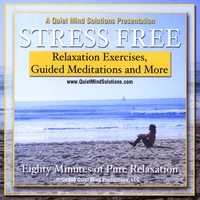Ken Goodman L.C.S.W.
Anxiety and OCD Therapy, Coaching, and Self-Help
Offices in Encino & Porter Ranch
kengoodmanlcsw@yahoo.com
Virtual Online Office
(818) 426-1780
What is Social Phobia?
People often feel nervous when they go on a first date or feel butterflies prior to giving a speech. They feel nervous because of a fear of messing up and embarrassing themselves. This is normal. However, in some cases, that nervousness, those butterflies and the fear of embarrassment can be so terrifying that it completely takes over a person’s social life.
Social Phobia is a fear of social situations and anxiety when in the presence of other people. Those who have social phobia believe that they are being scrutinized and judged. When out in public they feel like people are staring. They also imagine that people are thinking negative things about them. There’s a fear they will say something wrong, and thus screen their thoughts before they speak. Essentially they have a fear of embarrassment and because of it, people with Social Phobia avoid going to parties, eating in public, walking across streets, going on dates, or going any place where they could possibly do something embarrassing. When they do push themselves to go, they feel anxious. Usually, the person recognizes that the fear is illogical and disproportionate but feels powerless about controlling the fear.
Social Phobia can be depressing and cause one to miss out on many life experiences. A teenager with this disorder may miss the high school prom, college students may avoid going out on dates and adults with Social Phobia may get passed over for promotions because they never speak up at meetings, avoid giving presentations, and are too intimidated to interact with others.
HOPE
Excerpts from The Anxiety Solution Series before and after treatment:
“When I had anxiety really bad I didn’t really like to talk to anybody. I mean I wish I could in my mind but then I would never do because as soon as someone walked by I would turn away and then my heart would start pounding and I guess it was because I would think they would judge me or I would embarrass myself. I was really worried about embarrassing myself in front of people.” - College Student
“After I started getting over my anxiety I just started talking to people; just introduced myself to new people and it felt good. I just started forcing myself to meet one person a day; just anybody that walked down the halls (at work); just stop them and say, “Hey I’ve seen you before but we’ve never met.” I would feel really good about that so I would do it more. Now I just feel like I’m a really outgoing person, much more than I was before.” - College Student
SYMPTOMS
Social phobia affects people physical, emotional and behaviorally:
- Physical symptoms include sweating, trembling, nausea, blushing, difficulty talking or walking, increased heartbeat, and feeling faint before and during a social event.
- Emotional symptoms include excessive anxiety, illogical fear of being watched and judged by others, feeling worried for days or weeks before a social event, anxiety during the event, and dwelling about the event after it is over.
- Social phobia can also affect how a person behaves. Avoiding social situations is the most common behavior. It’s also common to turning to alcohol or drugs to cope with social situations which may lead to abuse or dependency.
TREATMENT
The most effective treatment for social phobia is Cognitive Behavioral Therapy. Some techniques used include systematic desensitization, exposure therapy and social skills training. Group therapy specifically for Social Phobia has also been found to be effective. Medications are sometimes used as well.
